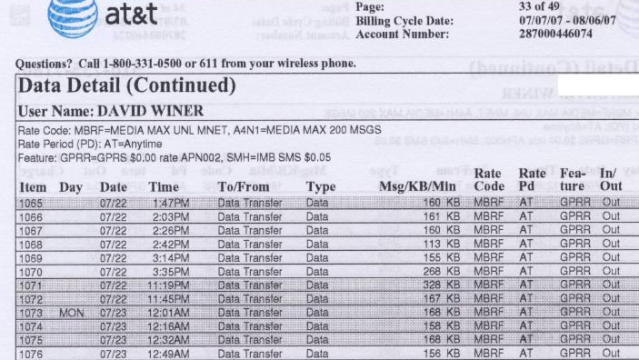Ron Dorff, 83, uses dial-up to connect to the internet as one of AOL’s 2.2 remaining customers. In the space of two months, he racked up $US24,000 in AT&T charges when his modem erroneously dialled an international number to get online. What’s the most ridiculous bill you’ve received from a telecommunications provider?
Luckily for Mr Dorff, after initial insistence that he pay the outrageous bill, AT&T back-pedalled, probably realising that such an obscene demand of an octogenarian wouldn’t be worth the PR implosion. The Ars Technica article on the matter doesn’t make clear whether the wrong number selection originated with Mr Dorff or as a technical error, but at least AT&T did the right thing in this case and waived the bill.
Others haven’t been so lucky. Telecom companies are notorious for issuing crazy bills, often without warning that egregious extra charges have been accumulating. Five years ago, the FCC was interested in imposing regulations so that companies couldn’t induce “bill shock”, which it defines as:
[a] sudden and unexpected increase in monthly bills that is not caused by a change in service plans. Bill shock can occur for a number of reasons including unclear or misunderstood advertising, unanticipated roaming or data charges, and other problems.
While the regulations do not appear to have come to fruition (how shocking), the FFC.gov website has advice for consumers who have experienced bill shock calamity, plus awesomely helpful tips like “If you are an infrequent phone user, consider a pre-paid plan. Because you ‘pre-pay’ for all your minutes, these plans make it impossible to go over your set limit.” Thanks FCC!
Are you a victim of bill shock? Tell us about the most egregious shit telecoms have tried to pull.
Picture: Flickr
